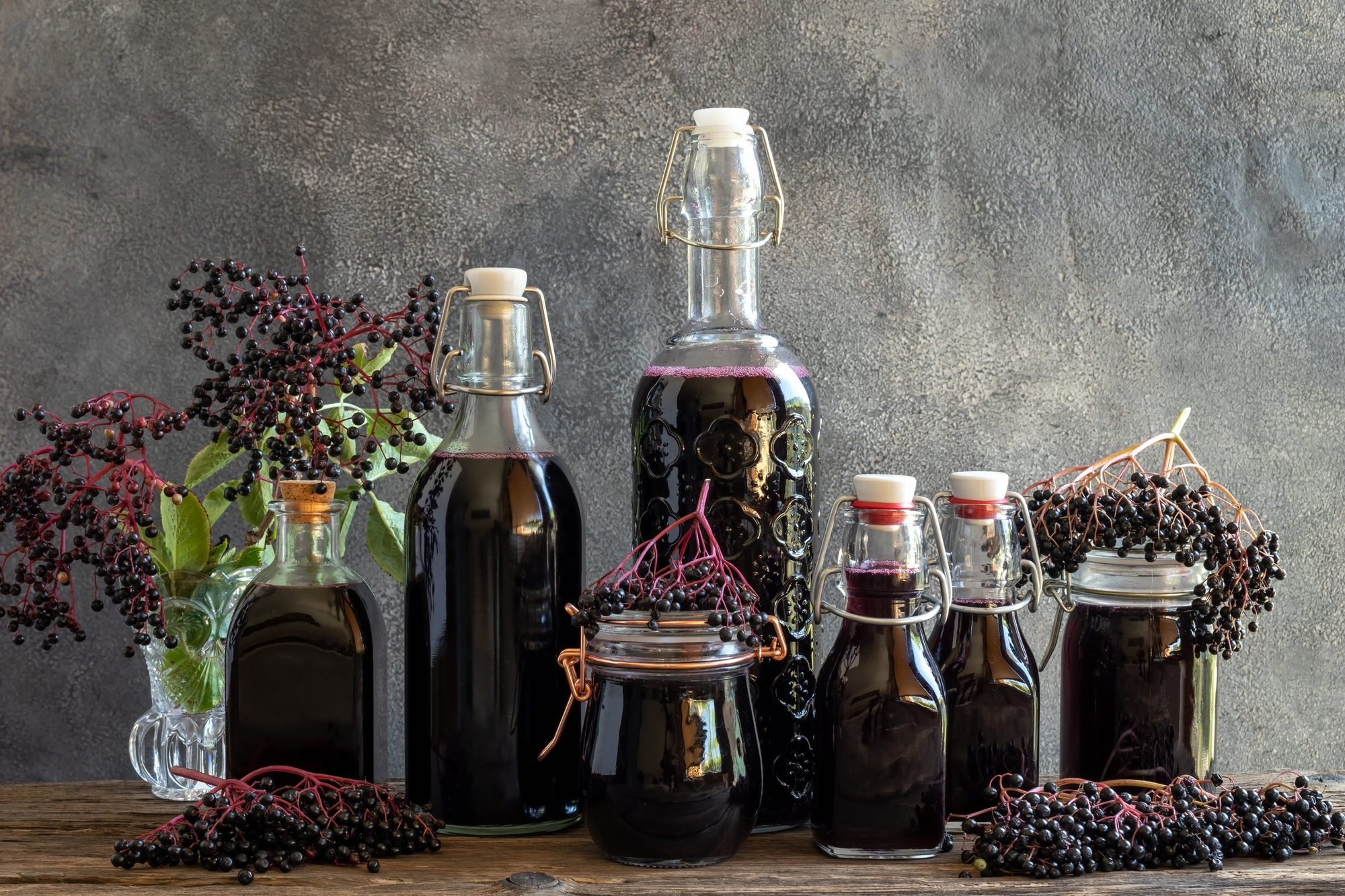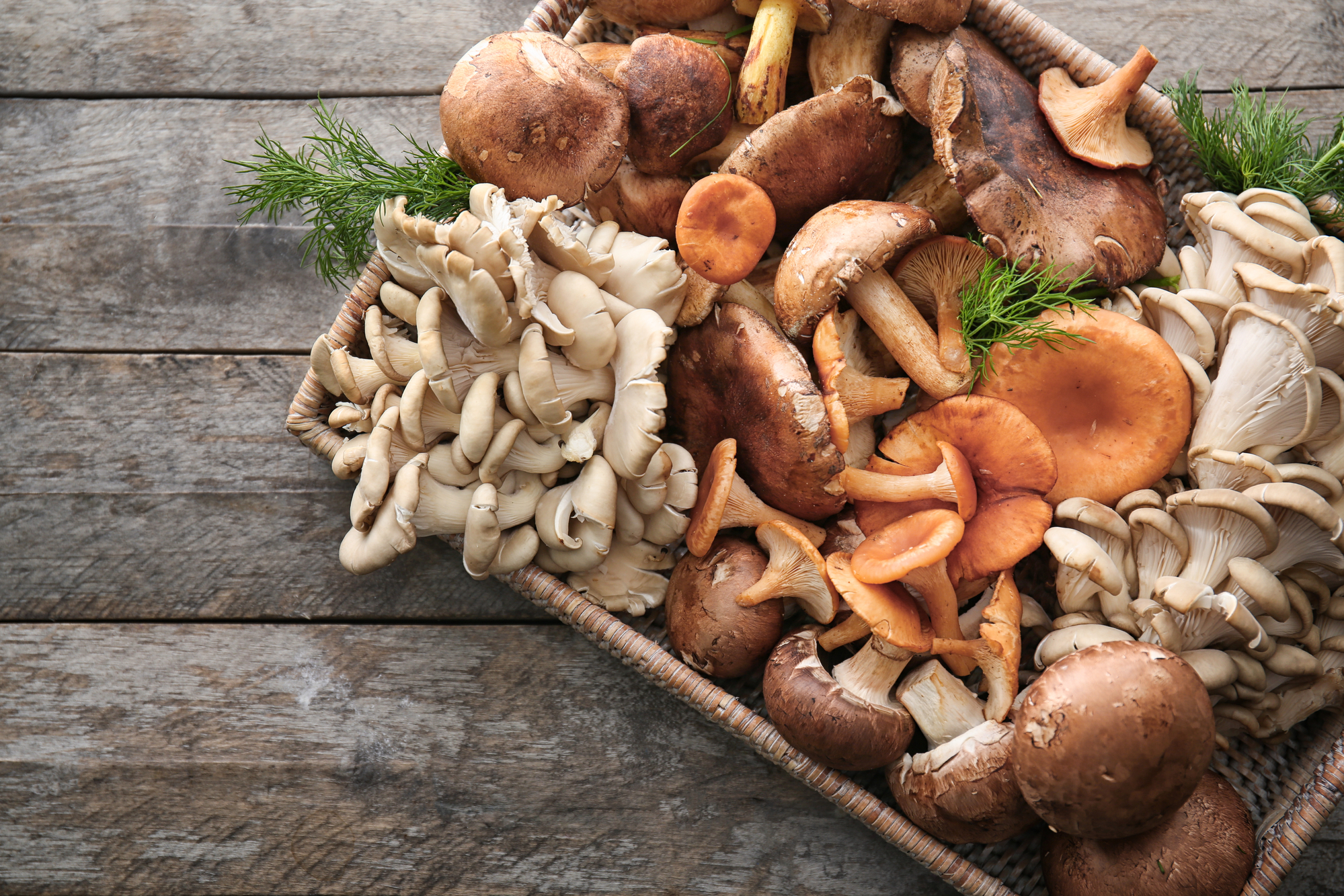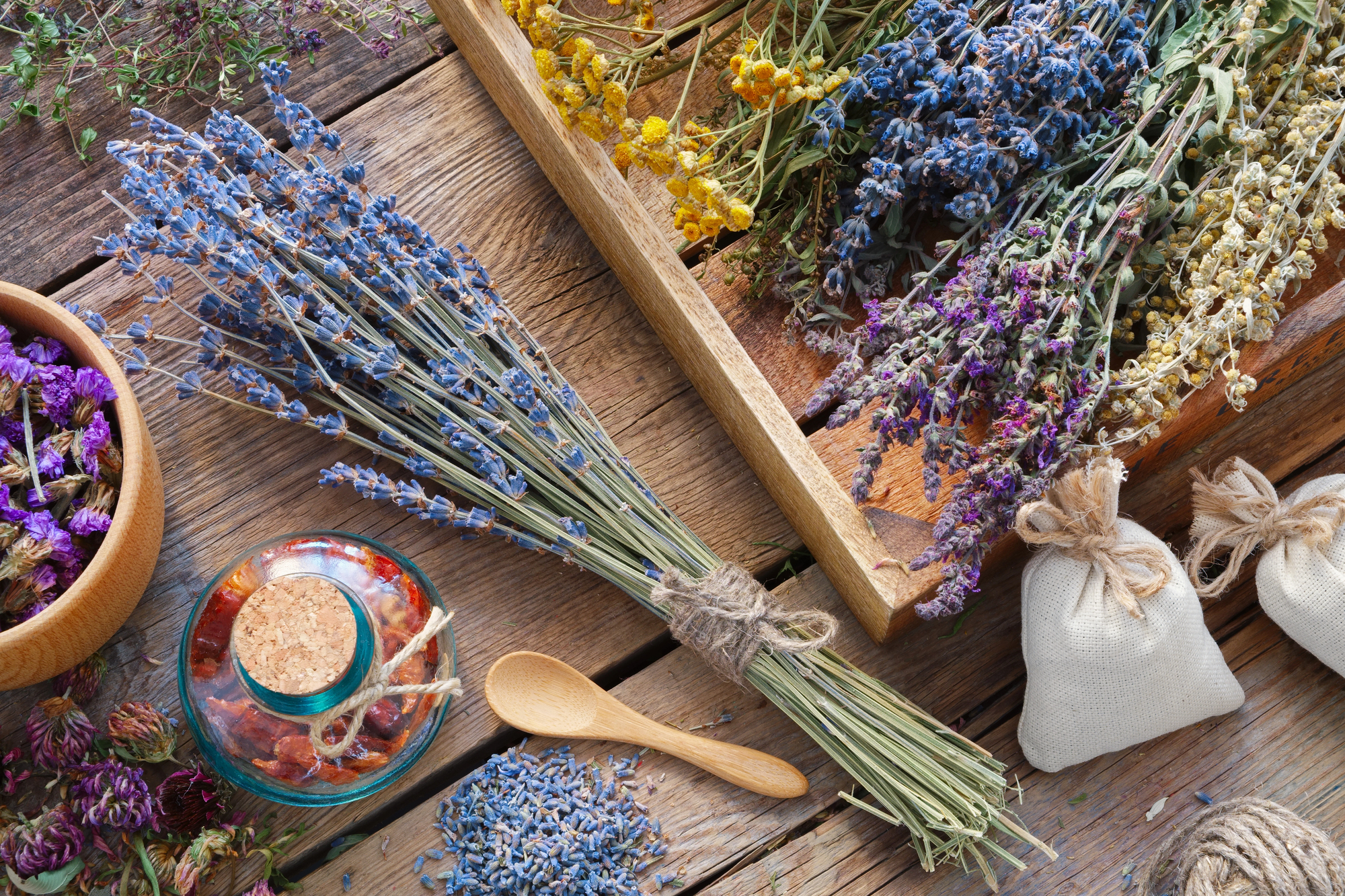We all experience stress and anxiety in our daily lives. Fortunately, nature offers soothing remedies in the form of herbal teas for a balanced nervous system. In our fast-paced world, the quest for tranquility often leads us to seek natural remedies to help us unwind and restore balance.
Herbal teas are known for their calming effects, and today, we will focus on three standout options: chamomile, lavender, and lemon balm. Each of these herbs has a unique flavor and therapeutic properties, making them perfect allies in the journey toward a more relaxed state of mind.
Understanding the benefits of these herbal teas can empower us to make informed choices about our wellness routines. Chamomile is renowned for promoting restful sleep, while lavender helps reduce anxiety and stress relief. Meanwhile, lemon balm has a delightful citrusy taste and is known for its mood-enhancing effects.
Together, these herbal infusions can create a soothing ritual that nurtures the nervous system and fosters a sense of peace.
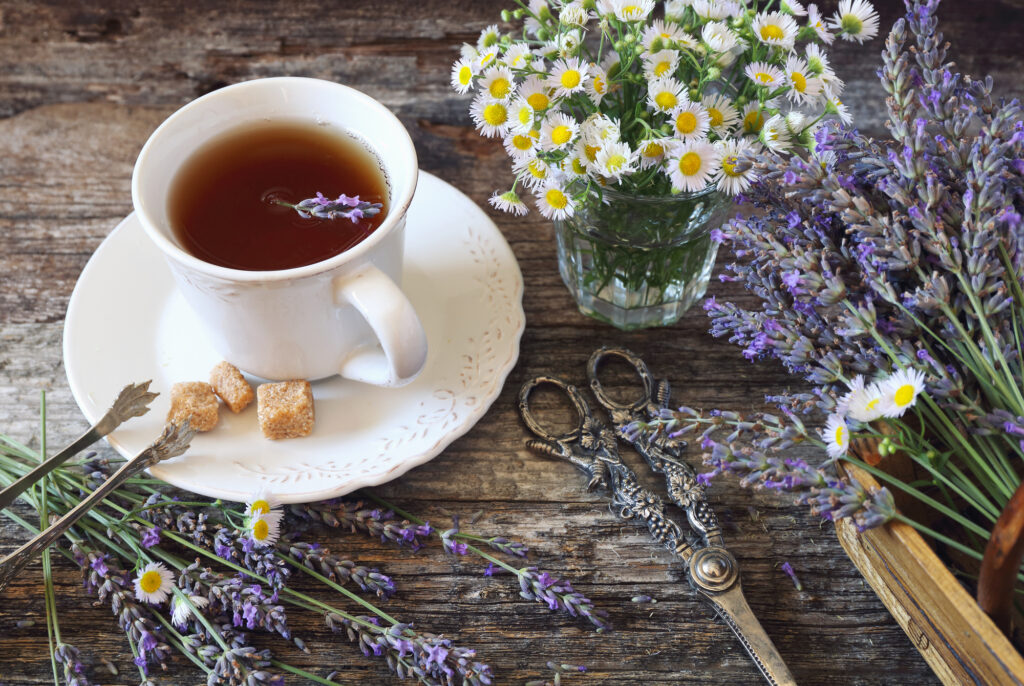
Understanding Herbal Teas and the Nervous System
Herbal teas have been used for centuries to support various aspects of health, including the nervous system. These natural brews contain compounds that can interact with our bodies in beneficial ways.
The nervous system plays a crucial role in our overall well-being. It controls everything from our thoughts and emotions to physical movements and bodily functions. When it’s out of balance, we may experience anxiety, stress, or difficulty relaxing.
Certain herbs have properties that can help soothe and support the nervous system. These include:
Adaptogenic Herbs: Help the body adapt to stress.
Nervines: Directly support nervous system function.
Sedatives: Promote relaxation and calmness.
When consumed as teas, these herbs release their beneficial compounds into the water, making them easy for our bodies to absorb and utilize.
Regular consumption of herbal teas can contribute to a more balanced nervous system over time. For best results, we recommend incorporating them into your daily routine.
Let’s explore how each of these herbal treasures can enhance our well-being and promote a balanced nervous system.
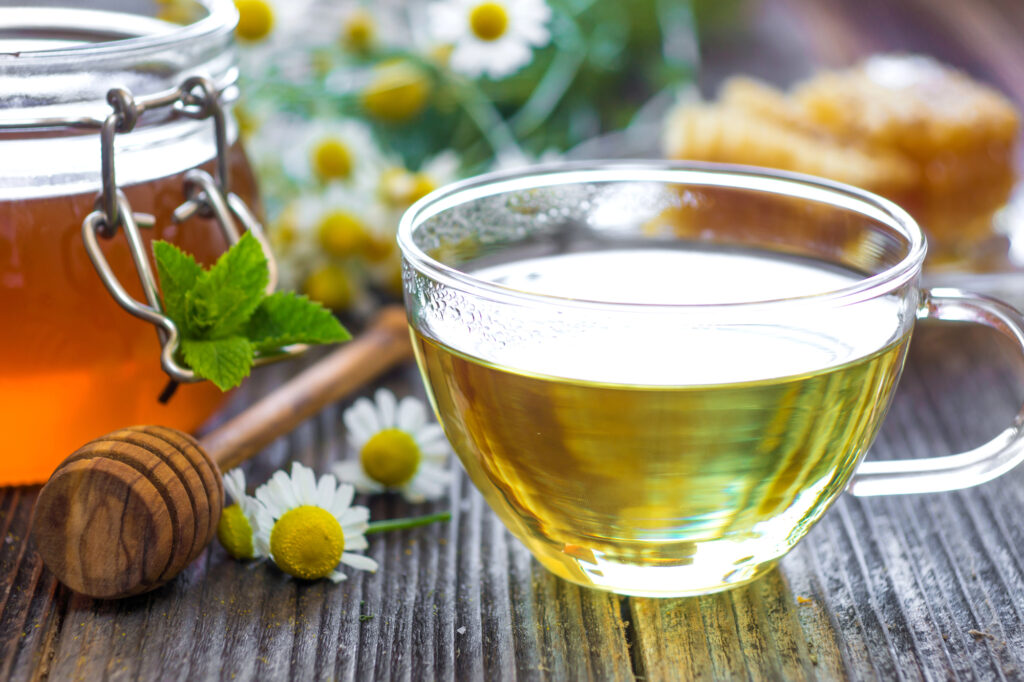
Chamomile Tea
Chamomile tea is a gentle, caffeine-free herbal infusion renowned for its calming properties. This mild-flavored beverage offers numerous benefits for the nervous system and overall well-being.
Soothing Effects of Chamomile
Chamomile contains apigenin, a flavonoid that binds to specific receptors in the brain, promoting relaxation. This compound helps reduce anxiety and induces a sense of tranquility. Regular consumption of chamomile tea may improve sleep quality and duration.
We’ve found that chamomile’s anti-inflammatory properties can also contribute to its soothing effects. Reducing inflammation in the body may help alleviate physical tension often associated with stress.
Chamomile tea may have mild sedative effects, making it an excellent choice for unwinding after a long day. It can help calm racing thoughts and promote a more peaceful mind.
Chamomile for Anxiety and Stress Relief
Research suggests that chamomile tea can be an effective natural remedy for managing anxiety and stress. Its calming properties may help reduce symptoms of generalized anxiety disorder, promote a more balanced nervous system and significantly improve our mood.
Drinking chamomile tea regularly can help lower cortisol levels, the body’s primary stress hormone. This reduction in cortisol can lead to decreased tension and improved emotional well-being.
Chamomile tea can be particularly beneficial during acute stress. Its gentle, soothing nature can help take the edge off in high-pressure situations without causing drowsiness.
How to Brew the Perfect Cup of Chamomile
Proper brewing is essential to maximize the benefits of chamomile tea. Here’s a simple guide:
- Use 1-2 teaspoons of dried chamomile flowers or a pre-made tea bag per cup of water.
- Heat water to just below boiling (around 200°F or 93°C).
- Steep for 5-7 minutes, depending on desired strength.
- Strain or remove the tea bag.
- Add honey or lemon to taste.
We recommend using loose chamomile flowers for the best results, as they often provide a more potent and flavorful brew. Steep the tea in a covered container to prevent the volatile oils from escaping.
Enjoy your chamomile tea in a quiet, comfortable setting to enhance its relaxing effects. Sipping slowly and mindfully can further promote a sense of calm and well-being.
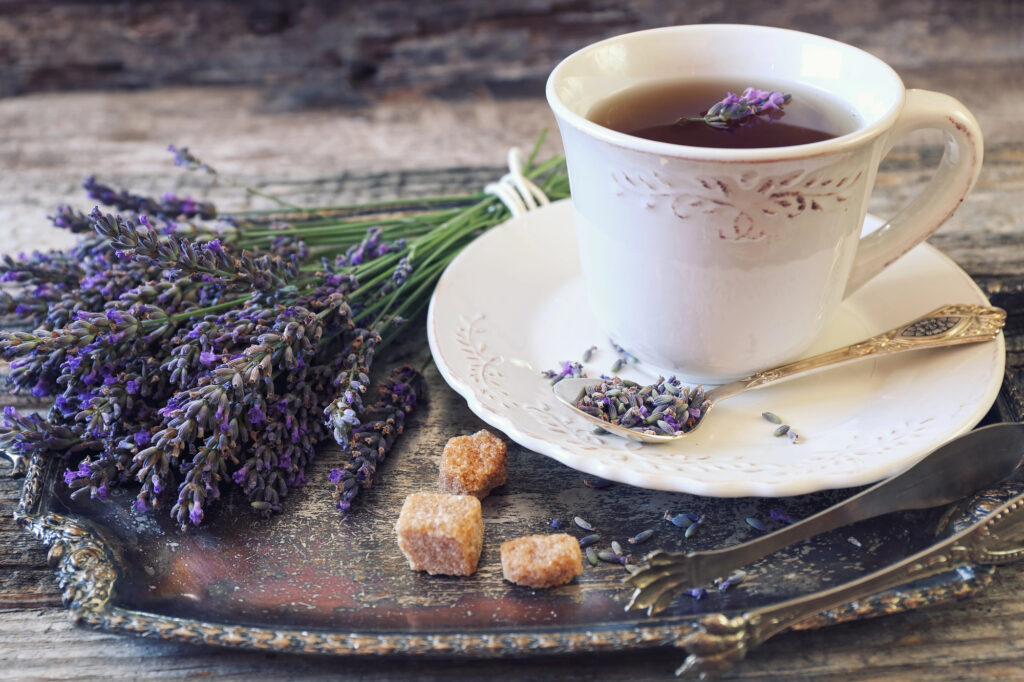
Lavender Tea
Lavender tea offers a soothing and aromatic experience that can help calm the mind and body. This gentle herbal infusion is renowned for its relaxing properties and potential to support a balanced nervous system.
Lavender’s Calming Properties
Lavender contains compounds like linalool and linalyl acetate, contributing to its calming effects. These natural chemicals can help reduce stress and promote relaxation. Drinking lavender tea may lower cortisol levels, the body’s primary stress hormone.
Research suggests that lavender can improve sleep quality and duration. It may also alleviate mild anxiety symptoms and promote a sense of well-being. The pleasant aroma of lavender tea can trigger relaxation responses in the brain, helping to quiet racing thoughts.
Nervous System Support with Lavender
We find that lavender tea can positively impact the nervous system. It may help regulate neurotransmitter activity, potentially reducing excessive stimulation. This can lead to a more balanced state of mind and body.
Lavender’s anti-inflammatory properties may also benefit the nervous system. Reducing inflammation could help protect nerve cells and support overall neurological health. Some studies indicate that lavender may have neuroprotective effects, potentially safeguarding against certain neurological disorders.
Regular consumption of lavender tea might help maintain a calmer, more balanced nervous system baseline. Over time, this can improve stress resilience and a more balanced emotional state.
Preparing Lavender Tea for Optimal Benefits
We recommend using 1-2 teaspoons of dried lavender buds per cup of hot water to make lavender tea. Steep for 5-7 minutes, then strain and enjoy. Increase the steeping time or amount of lavender used for a stronger flavor.
Adding a touch of honey can enhance the taste and provide additional soothing benefits. Drinking lavender tea 30-60 minutes before bedtime may help improve sleep quality. For daytime use, consume a cup when feeling stressed or overwhelmed.
Fresh lavender is the best choice, but adjust quantities as fresh herbs are less concentrated. Always ensure you’re using culinary-grade lavender to avoid any potentially harmful additives or pesticides.
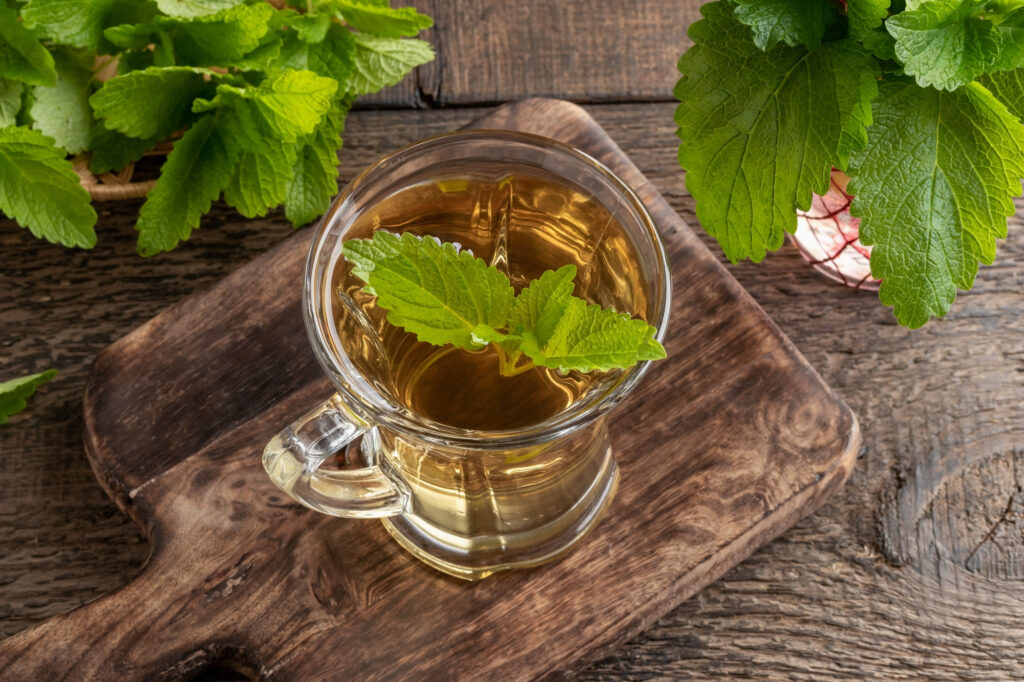
Lemon Balm Tea
Lemon balm tea offers a soothing and uplifting experience for the nervous system. This herbal brew combines calming properties with cognitive benefits, making it an ideal choice for relaxation and mental clarity.
Lemon Balm’s Relaxation Qualities
Lemon balm tea is renowned for its calming effects on the nervous system. It contains compounds that interact with GABA receptors in the brain, promoting relaxation and reducing anxiety. Regular consumption can lead to improved mood and decreased stress levels.
The tea’s mild sedative properties make it an excellent choice for those struggling with sleep issues. Many users report falling asleep more quickly and experiencing better rest after drinking lemon balm tea before bedtime.
Its gentle nature means it can be enjoyed throughout the day without causing drowsiness, making it perfect for managing everyday stress and tension.
Enhancing Cognitive Function with Lemon Balm
Beyond its calming effects, lemon balm tea offers cognitive benefits. Studies have shown it can enhance memory and increase alertness, particularly in older adults. This dual action of relaxation and mental stimulation makes it unique among herbal teas.
Lemon balm contains antioxidants that protect brain cells from oxidative stress, potentially slowing cognitive decline. Regular consumption may improve concentration and focus, especially during sustained attention tasks.
Lemon balm tea can be beneficial during mental fatigue or when facing challenging cognitive tasks.
Lemon Balm Brewing Techniques
Proper brewing is essential to maximizing the benefits of lemon balm tea. We recommend using 1-2 teaspoons of dried lemon balm leaves per cup of hot water. Steep for 5-10 minutes, depending on the desired strength.
Cover the cup while steeping for a more potent brew to prevent the volatile oils from escaping. This method ensures you capture the full spectrum of beneficial compounds.
Lemon balm tea is a relaxing favorite and can be made hot or cold. For iced tea, brew a more potent concentration and pour over ice. Adding a touch of honey can enhance the flavor without compromising its calming effects.
Fresh lemon balm leaves offer a more vibrant flavor profile. Use a handful of fresh leaves in place of dried ones.
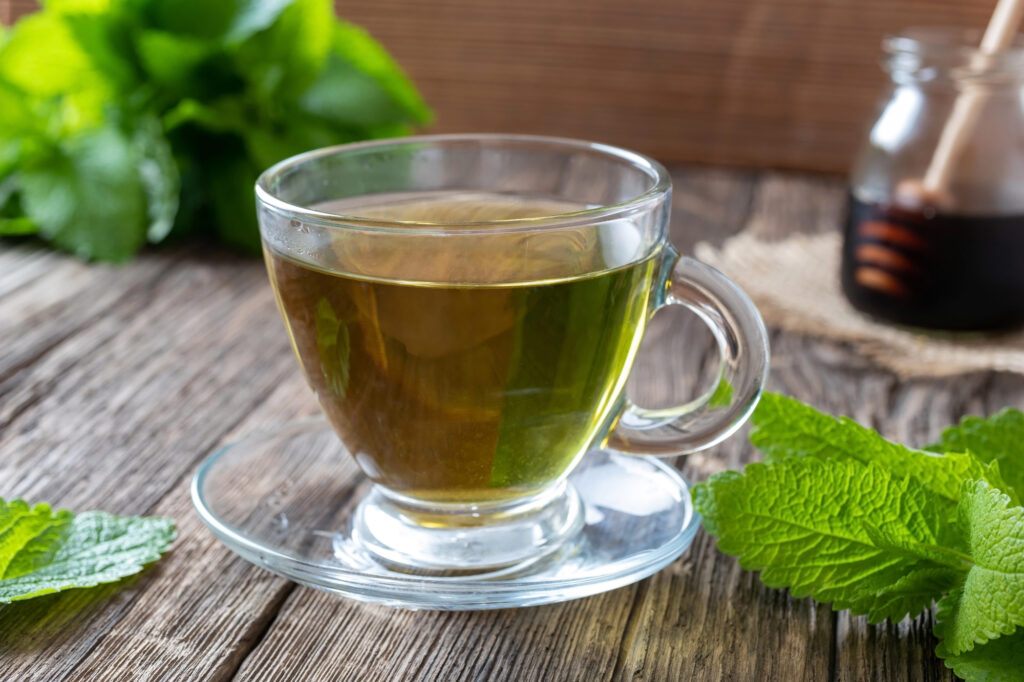
Incorporating Herbal Teas Into Your Daily Routine
Starting a herbal tea routine is simple and enjoyable. We recommend choosing a consistent daily time to brew and savor your tea. This could be in the morning to start your day calmly or in the evening to unwind.
Experiment with different brewing methods to find your preferred taste. Use loose-leaf teas or tea bags and steep for 5-10 minutes in hot water. Add honey or lemon if desired.
Create a relaxing ritual around your tea time. Find a quiet spot, put away distractions, and focus on the aroma and warmth of your cup. This mindful practice enhances the calming effects.
Try alternating between different herbal teas throughout the week. This variety ensures you receive various benefits and keeps the routine interesting.
Aim to drink 1-3 cups of herbal tea daily for maximum effectiveness. Start with one cup and gradually increase as desired.
Remember to stay consistent with your tea routine. Like any healthy habit, regular consumption yields the best results for supporting your nervous system.
Consider keeping a journal to track how different teas affect your mood and stress levels. This can help you identify which blends work best for you.
Side Effects and Interactions of Herbal Teas
While herbal teas are generally safe for most people, they can cause side effects in some individuals. Common side effects may include nausea, headaches, or allergic reactions. When trying a new tea, it’s important to start with small amounts.
Chamomile tea can cause drowsiness and may interact with blood thinners. People allergic to plants in the daisy family should avoid it, and pregnant women should consult a doctor before consuming it.
Lavender tea is usually safe, but excessive consumption may lead to constipation or headaches. It can increase drowsiness when combined with sedatives or sleep aids.
Lemon balm tea may cause increased appetite, nausea, or dizziness in large amounts.
Some other herbal teas can interact with medications:
- Blood thinners (e.g., warfarin)
- Sedatives
- Antidepressants
- Blood pressure medications
It is important to listen to your body and adjust usage as needed. While these herbs are generally safe, it’s wise to consult a healthcare provider or holistic health practitioner, especially if you have existing health conditions or take medications.
Embracing herbal remedies can complement a healthy lifestyle. Combined with proper rest, nutrition, and stress management, they form a holistic approach to wellness.
Remember to pass these tips along to your friends and family, ensuring that everyone enjoys a healthy winter season. Wishing you all the best on your wellness journey from the Love Yourself Holistic team!

